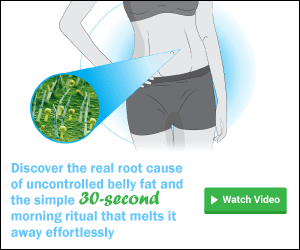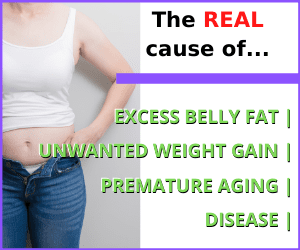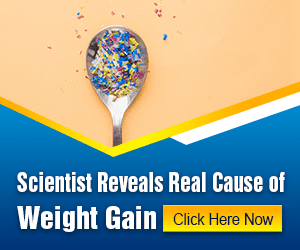Menopause can be such a confusing time for women to experience. It can feel like your hormones are completely in control, and you have zero agency over your body.
But what if I told you that it’s possible for you to regulate your hormones, feel better, and actually lose weight when going through menopause?
In today’s video, I break down the hormone system in simple terms, and give you some ideas for foods you can eat in order to regulate your hormones, reach your weight loss goals, and ultimately feel better.
Join the 10 Pound Takedown Challenge – Lose your first, next, or last 10 pounds!!
With absolutely NO pills, powders, shakes, or exercise required.
RESOURCES & LINKS MENTIONED IN THIS VIDEO:
Code Red Coaching:
“What’s Eating You”:
“Grief, Loss & Code Red”:
“Loving the New You”:
“Code Red Kids”:
Sign up for encouraging updates from Cristy:
__________
CHECK OUT MY OTHER VIDEOS:
How To Lose Weight FAST Without Exercise (Avoid Weight Loss Plateau):
How To Flatten Your Belly Without Exercise (+ Why Belly Fat Is So Stubborn):
Bad Foods For Weight Loss (Foods To Avoid To Lose Weight Faster):
Breaking Sugar Addiction (How Much Sugar Is Too Much For Kids?):
Inflammatory Foods To Avoid (Foods That Cause Inflammation):
__________
CONNECT WITH ME:
Facebook:
Instagram:
Twitter:
Website:
#MenopausalRelief #WeightLossMotivation #Menopause
For some women, going through menopause is like a breeze. But for others, the symptoms can be downright unbearable. From hot flashes and night sweats to mood swings and weight gain, there's a lot that goes on during menopause. And what you eat can play a role in how you feel. So if you're wondering what to eat during menopause, read on for the best and worst foods for women going through this stage in life.
 1. Best: Fruits and Vegetables
1. Best: Fruits and Vegetables
Fruits and vegetables are packed with nutrients that are essential for good health, including vitamins, minerals, and antioxidants. And they're also low in calories, making them a great choice for menopausal women who are trying to lose weight. Aim for at least five servings of fruits and vegetables per day. Some good options include leafy greens, berries, citrus fruits, tomatoes, and sweet potatoes.
2. Best: Lean protein
Lean protein is an important part of a healthy diet for menopausal women. It helps keep you feeling full and provides your body with the amino acids it needs to build muscle tissue. Good lean protein sources include chicken, fish, tofu, legumes, and eggs.
 3. Best: Whole grains
3. Best: Whole grains
Whole grains are a great source of fiber, which can help with weight loss and digestion. They're also rich in vitamins and minerals that are important for menopausal women. Choose whole-grain breads, cereals, pastas, and rice. And make sure to look for the word “whole” on the label; “multi-grain” doesn't necessarily mean it's a whole grain product.
4. Worst: Refined carbs
Refined carbs are made from flour that has been stripped of its nutrients. They're often found in processed foods like white bread, pastries, and pasta. While they may be tasty, they're not good for menopausal women. Refined carbs can cause blood sugar spikes, which can lead to weight gain and mood swings.
5. Worst: Saturated and Trans fats
Saturated and trans fats are found in animal products and processed foods. They're known to raise cholesterol levels and increase the risk for heart disease. So it's best to avoid them during menopause. Instead, focus on eating healthy fats like olive oil, avocados, and nuts.
 6. Worst: Alcohol
6. Worst: Alcohol
Alcohol can be a trigger for hot flashes and night sweats. It can also interfere with sleep, which is important for menopausal women who are already dealing with insomnia. If you do drink alcohol, limit yourself to one drink per day.
7. Worst: Caffeine
Caffeine is a stimulant that can cause anxiety and irritability. It can also trigger hot flashes. So it's best to limit or avoid caffeine during menopause.
If you’re experiencing menopause, it’s important to be mindful of the foods you eat. While there is no one-size-fits-all answer for what to eat during menopause, we hope our list of best and worst foods for women will help give you a place to start. If you have any questions or need more personalized advice, don’t hesitate to contact us today. Our team of experts would be happy to help!



 1. Best: Fruits and Vegetables
1. Best: Fruits and Vegetables 3. Best: Whole grains
3. Best: Whole grains 6. Worst: Alcohol
6. Worst: Alcohol
My sisters told me about Code Red. They both have had amazing results from this new lifestyle. Before I decided to try it I was vegan and ate very little fat became a sugar junkie. I started getting hypoglycemic. It was so bad I would snack constantly. I still have fear of being hypoglycemic, that shaky about to pass out, out of control feeling.
Not only did I have low blood sugar constantly, I also had hot flashes almost every hour on the hour. I couldn’t sleep well because I would get so hot I would sweat throw the covers off and then get chills so I was never comfortable for long. I just figured I would have to put up with it until it decided to never come back. Mood swings weren’t bad but I noticed I just never had much energy and wasn’t feeling like a healthy 50 year old. I couldn’t string two days of feeling great together if I tried. I blamed it on all kinds of things even sugar but I was afraid if I gave up sugar where would I get my energy, my fix, my comfort because too much fat is bad, this is what I would tell myself. I held onto the belief of BS that was fed to us back in the 80’s. that fat causes cardiovascular disease and obesity.
I kick myself for believing this. I guess what I’m trying to say is, since starting the code red lifestyle 2weeks ago, yes 2 weeks ago my hot flashes have reduced to 2-3 during the day and maybe 1 at night. I sleep better and after the first week now have an abundance of energy.
So thank you Christy for shedding light on the bull sh… we’ve been fed for a long time.
Kudos to my new lifestyle.
You just made my day Liana!!! Thank you so much for sharing!!
Great post, Christy! Now I have to investigate what is a DIM supplement? I want to work on this! Age 66+ over about 20-25 lbs—- thanks!!!
A DIM supplement contains a component of cruciferous vegetables called diindolylmethane, which has been promoted for its effects on creating a healthy balance of estrogen and testosterone.
You can also eat cruciferous veggies such as Broccoli, cabbage, cauliflower, asparagus and kale daily!!
This post could not come at a better time – So excited to start the challenge tomorrow- I started eating better yesterday! To have hope is so amazing- hoping to not need my meds anymore (sleep, depression, anxiety). Already got off my blood pressure meds by losing 62 lbs last year . Thank you sooooo much Cristy!
That is amazing Michelle!!
Cristy you are so smart. That’s all. ❤️
Thanks Damian!! I appreciate that!!
YES! This is so true that you can lose weight in your 60s and in menopause. I didn’t think I could but Code Red changed my beliefs and I lost 66 pounds in 6 months!! My life is what I dreamed it would be in my 60s and beyond!! Thank you, Cristy!
That’s so awesome Toni!!!
Just started Code Red… losing weight after menopause is incredibly hard 😅
I am on day 3 of your lifestyle change and have lost 4 pounds 🙏🏻
#REBEL IN IDAHO
That is soo fantastic!!
I am in my sixties and have had menopausal symptoms for 15 years. I discovered Code Red through a friend and joined the January 2020 challenge. I am down 13 lbs and have noticed that my hot flashes have really decreased at only 2 weeks in! Thank you Cristy!! Love the Code Red Lifestyle!
Oh that makes my heart happy Mary Anne!! Thank you for sharing!!
Cristy speaks the truth. Finally someone who addresses the real issues: food, water and sleep. Not pills, shakes, fads…
Thank you Cass!
My hormones are trying to kill me! 🥺
What is dim supplements? 🤔